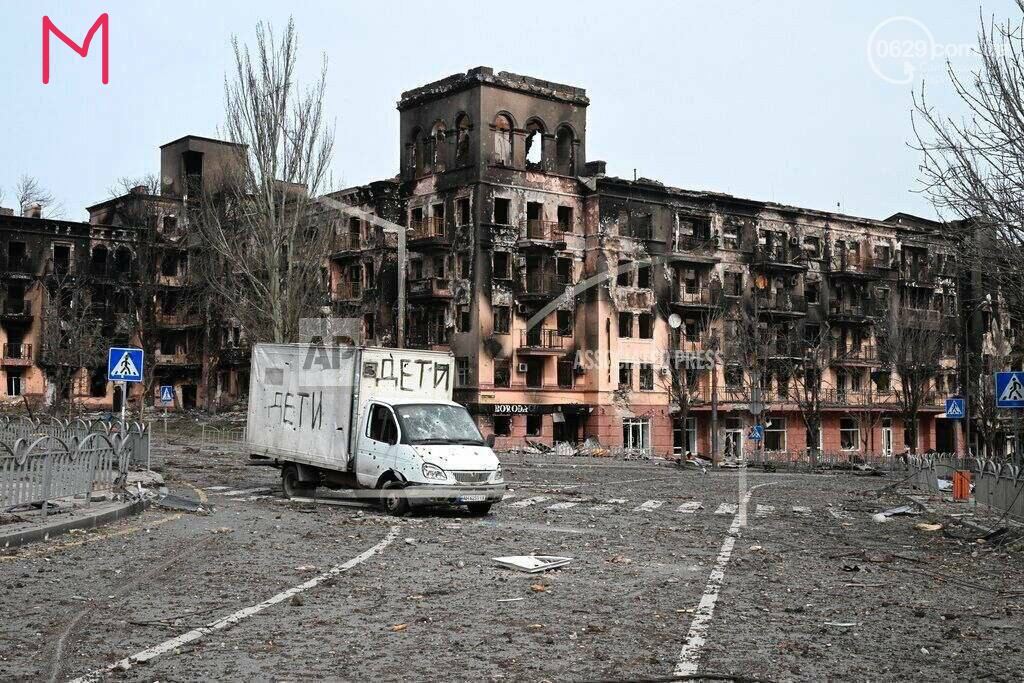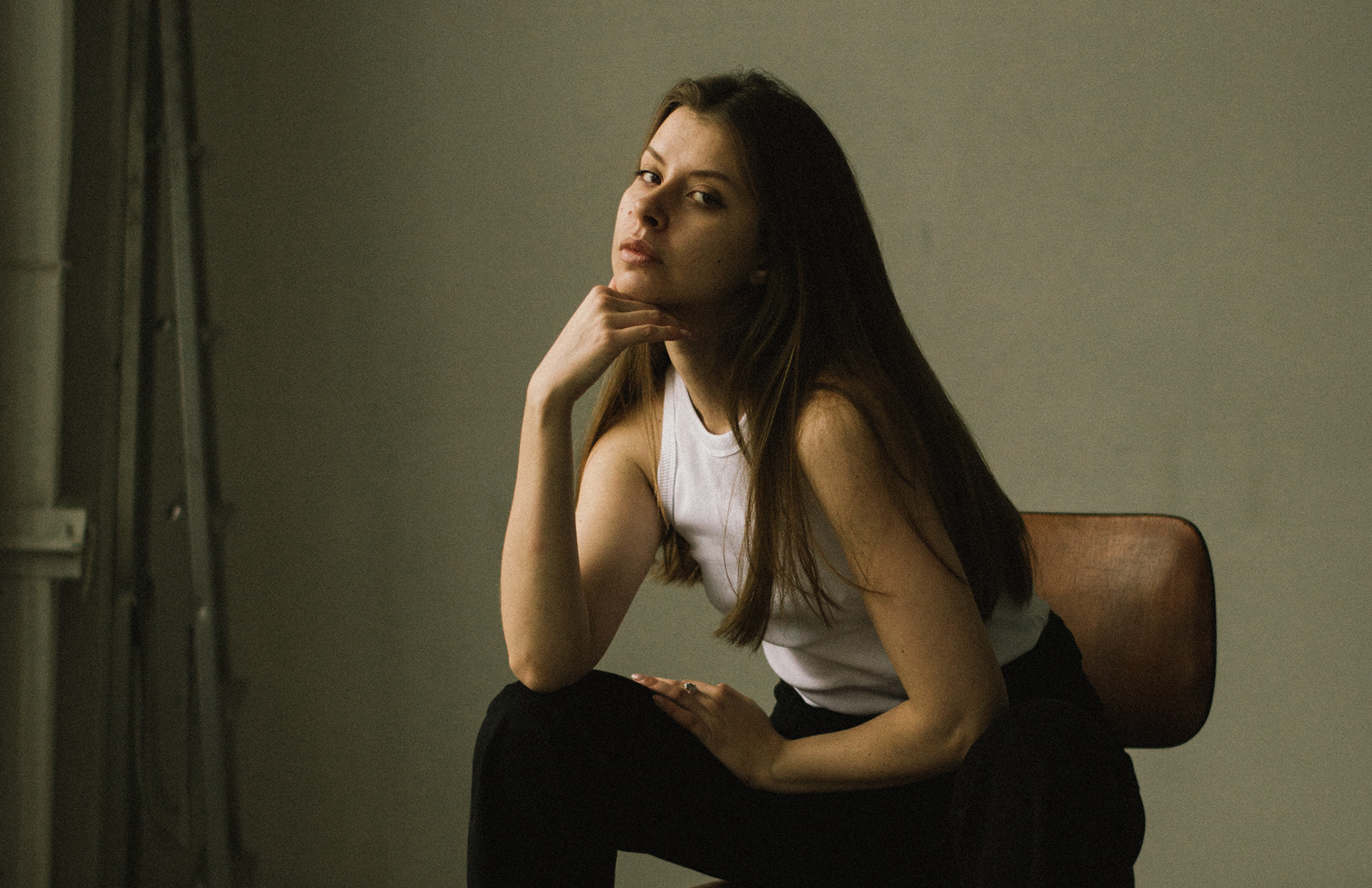“In films, there’s often a moment when a character’s life splits into “before” and “after.” I wish my moment had been one of growth and challenge. Unfortunately, it was a full-scale war.
Hi, I’m Dasha Klimenko from Mariupol, Donetsk Oblast, Ukraine. Some of you might have heard about this city from grim news reports. It is so grim, in fact, that when I say, “I’m from Mariupol,” people’s expressions change.
Mariupol has lived with war since 2014. On April 13, 2014, Russian militants attempted to seize administrative buildings and blocked several streets in the city center. On May 9, armored personnel carriers from the 72nd Brigade destroyed these barricades, though Russian fighters remained in the city. On June 13, 2014, Ukrainian forces completely eliminated the enemy’s strongholds. On January 24, 2015, at 9:15 AM, the market in the Left Bank district was shelled. Officially, 31 people were killed and 117 injured.
We often heard the war from the direction of the front line, but we learned to ignore it.
By November 2021, things started to feel really alarming. I remember frequently texting with my friend about the impending big war and the need to help our loved ones. My whole family was there: parents, grandmother, uncle, and cousin.
On February 25, 2022, Mariupol was blockaded. That’s when I completely lost contact with my family and didn’t know if they were alive for a whole month until March 20, 2022.
What was life like in Mariupol during the blockade? The best answer is to watch the film “20 Days in Mariupol” by Mstyslav Chernov and his team.
That period remains my worst nightmare. I was in the Kharkiv region, in a village called Velyka Danilivka, which is very close to the ring road. We saw tank battles, Russian soldiers, and the fights for Kharkiv. But my thoughts were always in Mariupol, where my parents were. We had no communication or electricity, so we gathered rumors from the streets. I remember someone in the crowd saying, “Mariupol is under blockade. They say there’s nothing left of the city.” Something inside me died then. Maybe the hope for the future.

My parents first contacted me on March 20, a day after my mom’s birthday. “We’re alive.” Just five seconds of conversation gave me so much strength. In the following six months, my family faced a huge challenge—moving across Ukraine in search of a home. In August, we learned that our grandmother was alive. My parents decided to return to Mariupol for the occupation.
Now, we’re constantly in touch, which is our most valuable resource. Mariupol, as I knew it, is gone. At least as my family, friends, and I knew it. The Russians have turned most of the residential buildings to ashes and buried tens of thousands under the rubble. Then, they transported the bodies like construction waste. The Russians are trying to rebuild the city to create a pretty picture for their propaganda. However, little of it is helpful for the residents. For example, the famous Сlock Tower in the city center, where we often met friends for coffee, has been demolished. They’re building a hideous replica. Those who had apartments there were offered nothing in return. “These apartments are for Russians, not you,” the builder says.
Some of my good friends are in Russian captivity. Vitaly Kaisarov and Anton Sanglich are two great guys who defended Mariupol; we still don’t know much about them. The exchanges are increasingly fewer for Azovstal defenders, including Azov fighters. I’m scared to think about what they’re going through.
Talk about the occupation is decreasing. There are also power outages all over Ukraine. There are queues everywhere and no decent healthcare, food, or basic necessities. The Russians have also blocked Instagram, Facebook, YouTube, and TikTok in these areas. Being in occupation is deadly. There are a lot of weapons, soldiers, drugs, and everything that was never in Mariupol. It feels like the occupying forces are doing everything they can to drive the locals away or to die in the occupation.
But as my dad says, “Yes, we live in hell. But we’re not afraid of devils.”
Living in Kyiv during the war while having roots and family in Donetsk Oblast is tough. Sometimes, I’m super productive, handling a million tasks a day. There are days, especially during family holidays when I don’t want to do anything. I cry a lot and can’t get anything done. I don’t know when I’ll see my parents again. I’m not sure I’ll see my grandmother and our family dog, Johnny. It breaks me.
But life goes on. In the grand scheme of history, these two and a half years are just grains of sand. And we need to learn to live with this.
How do you cope with all this?
Losing your home and not being able to see loved ones is akin to mourning the dead. So, I gave myself time to grieve. I give myself that space when I need to be alone with these emotions.
Second, creating a routine. War equals stress. Stress makes your brain less productive, and you start forgetting basic things. So, now my week is scheduled by the hour. I created a board in Notion and divided it by days of the week, needs, and so on. I check off what’s done. It helps me stay organized. Don’t forget about physical activity, proper nutrition, and sleep.
Third, fulfill your desires. Anything that boosts serotonin is worth pursuing. That is why I got a dog this year.
My advice to those who stayed.
You’re doing great. Just remember that you’re already doing enough. Take care of yourself and your health, and don’t forget to go to shelters during air raids! Let’s not give any chance to this Russian roulette.
My advice to those who left.
Avoid the narrative that “you left, so it’s easier for you.” Clearly, it’s not. You still have loved ones you worry about here, such as homes and cities. You’re also affected by each shelling. Immigration, even in peacetime, is highly stressful. And with the refugee situation, it’s even harder to talk about. And don’t forget to talk more about Ukraine. We shouldn’t be forgotten. Of course, if you have the resources to do so.
A bit about me.
I work as a writer and copywriter, and I’m deeply involved in the world of words and sentences. My portfolio includes collaborations with Diia.Education, AlphaGraphics, GameTree, and various local Ukrainian brands that needed help with posts and social media.
Right now, I’m looking for interesting projects. If you’re looking for a writer, maybe we could collaborate.”
The purpose of this community is to share experiences, feelings, and deeply connect. If by reading Dasha’s story you see a common ground, or know someone that could benefit from the introduction, feel free to reach out to me to share the contact information.
I would also encourage you to watch the discussion we had with Dasha in Kyiv earlier this summer on YouTube.
